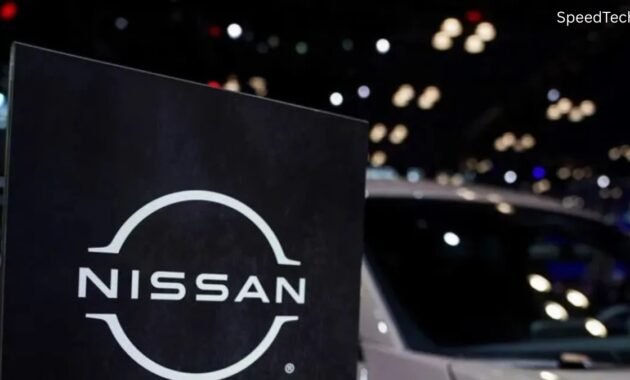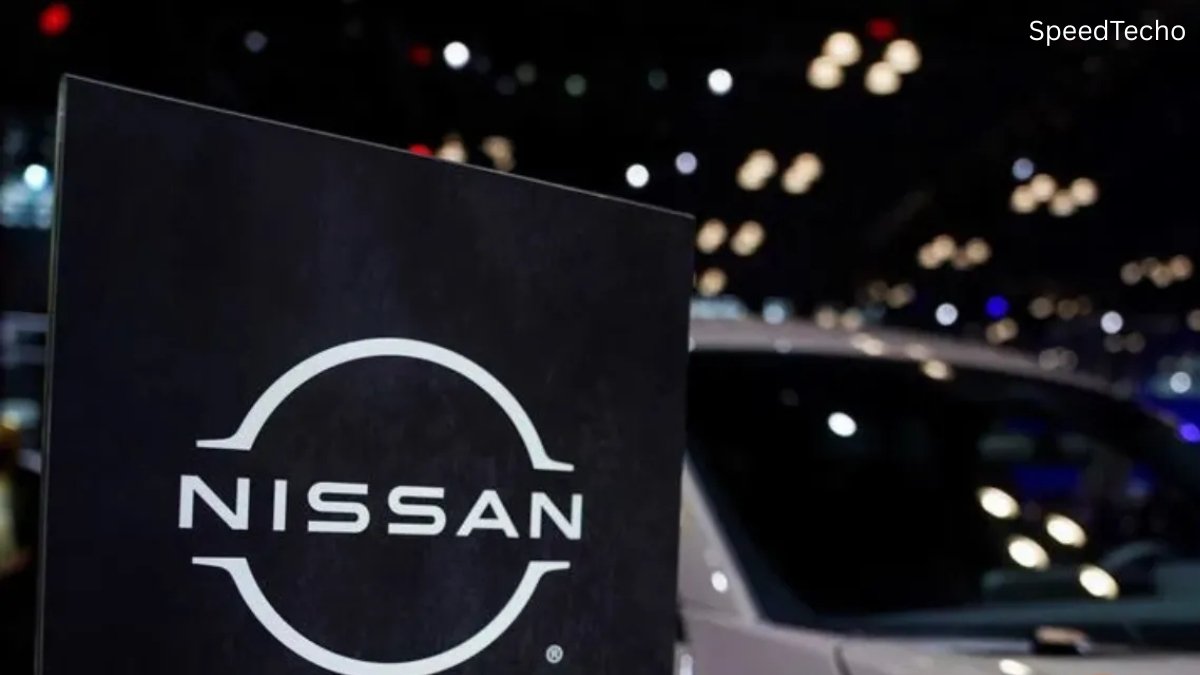As a Nissan owner, staying informed about vehicle recalls is essential for your safety and peace of mind. In July 2025, Nissan announced a significant Nissan recall affecting over 480,000 vehicles in the U.S. and Canada due to a potential engine failure risk caused by defective engine bearings. This issue could lead to serious safety concerns, making it critical for owners to act quickly. Additionally, ongoing recalls, such as the Takata airbag issue and a previous Altima door latch problem, highlight the importance of staying vigilant. This comprehensive guide provides all the details you need about these recalls, including how to check if your vehicle is affected, what steps to take, and answers to frequently asked questions. Our goal is to empower you with clear, trustworthy information to keep your Nissan safe on the road.
Table of Contents
Understanding Vehicle Recalls
A vehicle recall occurs when a manufacturer or the National Highway Traffic Safety Administration (NHTSA) identifies a defect that poses a safety risk or fails to meet federal safety standards. These defects can range from minor issues, like faulty sensors, to severe problems, such as engine failures or airbag malfunctions. Manufacturers are legally required to fix these issues at no cost to the owner, offering repairs, replacements, or, in rare cases, refunds.
Recalls are critical because they address potential hazards that could lead to accidents, injuries, or even fatalities. For example, a defective engine bearing could cause your vehicle to lose power unexpectedly, increasing the risk of a crash. Similarly, a faulty airbag could fail to deploy or, worse, explode, posing a life-threatening risk. According to NHTSA, millions of vehicles are recalled annually, but completion rates vary, with some owners unaware of open recalls on their vehicles. Checking your vehicle’s recall status regularly is a simple yet vital step to ensure safety.
Recent Nissan Recall for Engine Failure
In July 2025, Nissan issued a recall for approximately 443,899 vehicles in the U.S. and 37,837 in Canada due to a manufacturing defect in engine bearings that could lead to engine failure. This Nissan recall affects vehicles equipped with 3-cylinder 1.5L or 4-cylinder 2.0L variable compression turbo engines, which are innovative but complex technologies designed to optimize fuel efficiency and performance. Below, we break down the key details of this recall.
Affected Models
The following models and model years are included in the recall:
| Model | Years Affected |
|---|---|
| Nissan Altima | 2019-2020 |
| Nissan Rogue | 2021-2024 |
| Infiniti QX50 | 2019-2022 |
| Infiniti QX55 | 2022 |
These vehicles feature Nissan’s variable compression turbo engines, which adjust compression ratios for better efficiency. However, the defect in the engine bearings affects their reliability, necessitating immediate attention.
The Issue
The recall was prompted by manufacturing defects in the engine bearings, critical components that reduce friction within the engine. These defects can cause premature wear, leading to engine damage or complete failure. According to NHTSA, a failed engine can result in a “loss of motive power,” significantly increasing the risk of a crash, especially at high speeds or in heavy traffic. The issue affects an estimated 1.2% of the recalled vehicles, but all owners are urged to take action to prevent potential problems.
Symptoms to Watch For
Owners of affected vehicles should be alert for the following warning signs, which may indicate an issue with the engine bearings:
- Abnormal engine noise, such as knocking or grinding sounds.
- Rough running or unusual vibrations while driving.
- Malfunction indicator lights on the dashboard.
- Warning messages related to engine performance.
If you notice any of these symptoms, contact your Nissan or Infiniti dealer immediately to schedule an inspection. Early detection can prevent further damage and ensure your safety.
Read More: – Allstate Insurance Rating AM Best: What You Need to Know
What Nissan is Doing
Nissan is addressing this issue proactively by offering free inspections and repairs at authorized dealers. The remedy process includes:
- Inspection: Dealers will check the engine oil pan for metal debris, which indicates bearing damage.
- Repair or Replacement: If debris is found, the engine will be repaired or replaced at no cost to the owner.
- Preventive Measures: For vehicles with 1.5L engines, even if no debris is found, dealers will replace the oil pan gasket, engine oil, and reprogram the engine control module (ECM). For 2.0L engines, the engine oil will be replaced as a precaution.
All repairs are provided free of charge, reflecting Nissan’s commitment to customer safety. Owners will receive notification letters starting August 25, 2025, but you can check your vehicle’s status now using the VIN lookup tool.
What Owners Should Do
If you own one of the affected models, take the following steps:
- Check Your VIN: Visit Nissan’s recall page or NHTSA’s recall page and enter your 17-digit Vehicle Identification Number (VIN) to see if your vehicle is affected. Your VIN can be found on your vehicle’s registration, insurance card, or the driver’s side dashboard near the windshield.
- Contact a Dealer: If your vehicle is part of the recall, schedule an appointment with an authorized Nissan or Infiniti dealer for a free inspection and repair.
- Act Promptly: Even if you haven’t received a notification letter, addressing the recall as soon as possible is crucial to avoid potential safety risks.
For assistance, contact Nissan at 800-647-7261, Infiniti at 1-800-662-6200, or the NHTSA hotline at 1-888-327-4236 (TTY: 1-888-275-9171). More details are available at NHTSA’s recall notice.

Other Notable Nissan Recalls
In addition to the engine failure recall, Nissan has other ongoing recalls that owners should be aware of. These include the Takata airbag recall and a previous recall for 2015-2017 Nissan Altima vehicles. Below, we outline these issues to help you stay informed.
Takata Airbag Recall
The Takata airbag recall is one of the largest and most critical recalls in automotive history, affecting millions of vehicles across multiple brands, including Nissan. For Nissan, the recall involves certain 2002-2006 Nissan Sentra and 2002-2004 Nissan Pathfinder models. The issue lies in defective airbags that may explode upon deployment, sending metal fragments into the vehicle’s cabin, which could cause serious injury or death.
| Model | Years Affected |
|---|---|
| Nissan Sentra | 2002-2006 |
| Nissan Pathfinder | 2002-2004 |
Nissan has issued a “Do Not Drive” warning for these vehicles until the airbags are replaced. Owners are urged to contact an authorized Nissan dealer immediately to schedule a free repair. Nissan also offers free towing, mobile repair, and, in some locations, loaner vehicles to facilitate the process. Check your vehicle’s status at Nissan’s Takata recall page.
2015-2017 Nissan Altima Door Latch Recall
Another notable recall affects approximately 350,000 Nissan Altima vehicles from the 2015-2017 model years. The issue involves an improperly routed rear door latch/lock cable, which can cause the door to unlatch and open inadvertently when the rear window is lowered. This poses a significant risk, especially for rear passengers, as an open door during motion could lead to injuries.
| Model | Years Affected |
|---|---|
| Nissan Altima | 2015-2017 |
Nissan dealers will inspect and reroute the cable, installing a stronger release spring and adding a warning label and maintenance instructions, all free of charge. As of April 2018, the completion rate for this recall was 82.8%, according to NHTSA data, meaning some vehicles may still need repairs. Owners can check their vehicle’s status using the VIN lookup tool and contact Nissan customer service at 1-800-867-7669 for assistance.
Also Read: – Gruber Law Offices LLC by Owner: Trusted Milwaukee Injury Firm
How to Check if Your Vehicle is Affected by a Recall
Checking your vehicle’s recall status is straightforward and takes just a few minutes. Follow these steps:
- Locate Your VIN: Find your 17-digit Vehicle Identification Number on your vehicle’s registration, insurance card, or the driver’s side dashboard near the windshield.
- Visit Official Websites: Use the VIN lookup tool on Nissan’s recall page or NHTSA’s recall page.
- Enter Your VIN: Input the VIN to see if your vehicle has any open recalls.
- Contact a Dealer: If a recall is found, schedule a free repair with an authorized Nissan or Infiniti dealer.
You can also contact Nissan or Infiniti customer service for assistance or visit a local dealer with your VIN. Regularly checking for recalls, even if you haven’t received a notification, is a good practice to ensure your vehicle remains safe.
Frequently Asked Questions (FAQs)
1. How Do I Know If My Nissan Vehicle Is Part of the Recall?
To determine if your Nissan or Infiniti vehicle is affected by the recent Nissan recall or any other recall, you can use the VIN lookup tool available on Nissan’s official recall page or NHTSA’s recall page. Your Vehicle Identification Number (VIN) is a unique 17-digit code found on your vehicle’s registration, insurance card, or the driver’s side dashboard near the windshield. Enter the VIN into the lookup tool, and it will display any open recalls for your vehicle.
If you’re unsure how to find your VIN or interpret the results, you can contact your local Nissan or Infiniti dealer, who can check the status for you. For the recent engine failure recall, affected models include the 2019-2020 Nissan Altima, 2021-2024 Nissan Rogue, 2019-2022 Infiniti QX50, and 2022 Infiniti QX55. Owners will receive notification letters starting August 25, 2025, but you can check now to stay proactive. If your vehicle is affected, schedule a free repair immediately. Regularly checking your VIN, even without symptoms, ensures you stay informed about new recalls that may arise.
2. What Should I Do If My Vehicle Is Recalled?
If your vehicle is part of a Nissan recall, take immediate action to ensure your safety. First, confirm the recall by entering your VIN on Nissan’s recall page or NHTSA’s recall page. Once confirmed, contact an authorized Nissan or Infiniti dealer to schedule a free inspection and repair. For the engine failure recall, dealers will inspect the engine oil pan for metal debris and repair or replace the engine if necessary. For 1.5L engines, additional preventive measures include replacing the oil pan gasket, engine oil, and reprogramming the engine control module. All repairs are free.
You don’t need to wait for the official notification letter, which will begin mailing on August 25, 2025. Acting promptly reduces the risk of safety issues, such as engine failure while driving. If you experience symptoms like abnormal engine noise or warning lights, contact your dealer immediately. Nissan and Infiniti also offer support through their customer service lines (Nissan: 800-647-7261, Infiniti: 1-800-662-6200) to assist with scheduling and questions. Keep records of your repair for future reference, and check your VIN periodically for new recalls.
3. Is the Recall Repair Free of Charge?
Yes, all Nissan recall repairs are provided free of charge by authorized Nissan or Infiniti dealers. Federal regulations require manufacturers to cover the cost of fixing safety-related defects, including parts and labor. For the recent engine failure recall, dealers will inspect and repair or replace the engine as needed, at no cost to you. Similarly, the Takata airbag recall and the 2015-2017 Altima door latch recall involve free repairs, with Nissan offering additional support like towing or loaner vehicles for the airbag issue. To proceed, confirm your vehicle’s recall status using your VIN and schedule an appointment with a dealer. If you’re asked to pay for a recall repair, contact Nissan customer service immediately to resolve the issue.
4. What Are the Risks If I Don’t Get the Recall Fixed?
Ignoring a Nissan recall can lead to serious safety risks for you, your passengers, and others on the road. For the recent engine failure recall, defective engine bearings could cause your vehicle to lose power unexpectedly, increasing the risk of a crash, especially in high-speed or heavy traffic conditions. Symptoms like abnormal engine noise or warning lights indicate potential issues that could worsen if left unaddressed. For the Takata airbag recall, driving an affected 2002-2006 Sentra or 2002-2004 Pathfinder without repair could result in the airbag exploding upon deployment, sending metal fragments into the cabin, which could cause severe injury or death. The 2015-2017 Altima door latch issue could lead to a rear door opening while the vehicle is in motion, endangering rear passengers. Addressing recalls promptly eliminates these risks and ensures your vehicle meets safety standards.
5. Are There Any Other Recalls I Should Be Aware of for My Nissan Vehicle?
In addition to the recent engine failure recall, Nissan owners should be aware of other ongoing recalls, such as the Takata airbag recall affecting 2002-2006 Sentra and 2002-2004 Pathfinder models, and the 2015-2017 Altima door latch recall. To stay informed, regularly check your vehicle’s recall status using the VIN lookup tool on Nissan’s recall page or NHTSA’s recall page. New recalls can be issued at any time, and manufacturers may not always have your current contact information, especially if you’ve moved or purchased a used vehicle. For example, older recalls may still apply to your vehicle if previous owners didn’t address them. Contact Nissan customer service at 1-800-867-7669 or Infiniti at 1-800-662-6200 for assistance, and consider signing up for recall alerts through NHTSA’s website to stay updated.
Conclusion
The recent Nissan recall for engine failure, affecting over 440,000 vehicles in the U.S. and nearly 38,000 in Canada, underscores the importance of staying proactive about vehicle safety. Models like the 2019-2020 Altima, 2021-2024 Rogue, 2019-2022 Infiniti QX50, and 2022 Infiniti QX55 are at risk due to defective engine bearings, which could lead to engine failure and increased crash risk. Other recalls, including the critical Takata airbag issue for 2002-2006 Sentra and 2002-2004 Pathfinder models, and the 2015-2017 Altima door latch problem, also require attention. By checking your vehicle’s VIN on Nissan’s recall page or NHTSA’s recall page, you can confirm if your vehicle is affected and schedule free repairs. Acting promptly ensures your safety and maintains your vehicle’s reliability.






